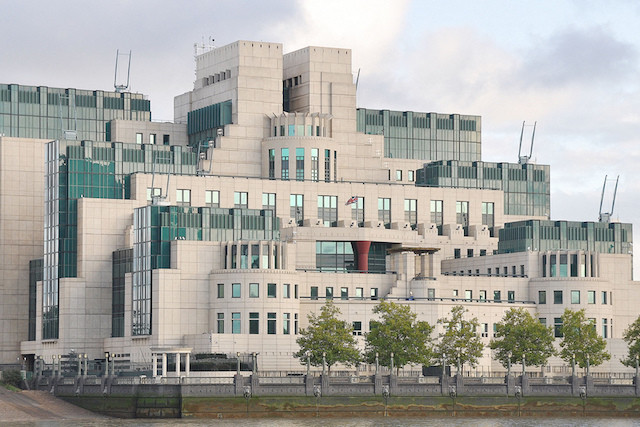Alex Younger will also set out how his agency, known formally as the Secret Intelligence Service (SIS), is preparing to strengthen ties with sister agencies in Europe amid continuing uncertainty over the possible repercussions of Brexit for security.
In only his second public speech since becoming “C” four years ago, Younger, 55, will address students at St Andrew’s University in Scotland, where he graduated before joining the army and then MI6. He is expected to focus on his concern about the myriad threats to the UK coming from a number of different spheres and how MI6 intends to keep pace with them.
Younger will say there are enemies who regard themselves to be in a state of perpetual confrontation with the UK – and in one passage, he is expected to directly challenge Russia. He will say MI6 played a central role in exposing the men behind the Salisbury attack and in the expulsion of the Russian diplomats that followed.
The aggressive approach embarrassed the Russian president, Vladimir Putin, and was designed to show Russia and other potentially hostile states that Britain will “attach a cost” to any malign behaviour and then strike back. Younger will urge Russia “or any other state intent on subverting our way of life not to underestimate our determination and our capabilities or those of our allies”.
The emergence of unconventional “hybrid threats” to UK national security, which could involve techniques such as cyber attacks, the spread of fake news and interference in domestic politics, is expected to be another central theme of Younger’s speech. Techniques developed during the two world wars, the cold war and after the 9/11 terrorist attack will no longer be enough to disrupt terrorist attacks, he will say.
The UK’s enemies are probing UK institutions and defences in ways that fall short of traditional warfare. To counter this, MI6 is having to innovate by “fusing” the information it gets from human intelligence with what it can learn from artificial intelligence and the exponential rise in technology.
“The era of the fourth industrial revolution calls for a fourth generation of espionage: fusing our traditional human skills with accelerated innovation, new partnerships and a mindset that mobilises diversity and empowers the young,” Younger is expected to say.
With extra money from the government in recent years, and plans to expand the service, Younger has been seeking to change its “James Bond” and Oxbridge image. The service is trying to become more diverse and reach out to communities that might not see themselves as recruiting grounds for MI6.
Younger will ask them to think again, arguing that the agency will only continue to be operationally effective if it can appeal to a broader spectrum of people.
“I want to speak to young people who have never seen themselves in MI6 … it doesn’t matter where you are from. If you want to make a difference and you think you might have what it takes, then the chances are that you do have what it takes, and we hope you will step forward.”
Last year Younger told the Guardian that MI6 want to return to the old-school method of “tapping up” recruits as part of a concerted effort to draw in a new cadre of black and Asian officers and finally dispel the image of British spies as the preserve of a privileged elite.
“That was the way I was recruited. We have to go to people that would not have thought of being recruited to MI6. We have to make a conscious effort. We need to reflect the society we live in.”
Nick Hopkins
